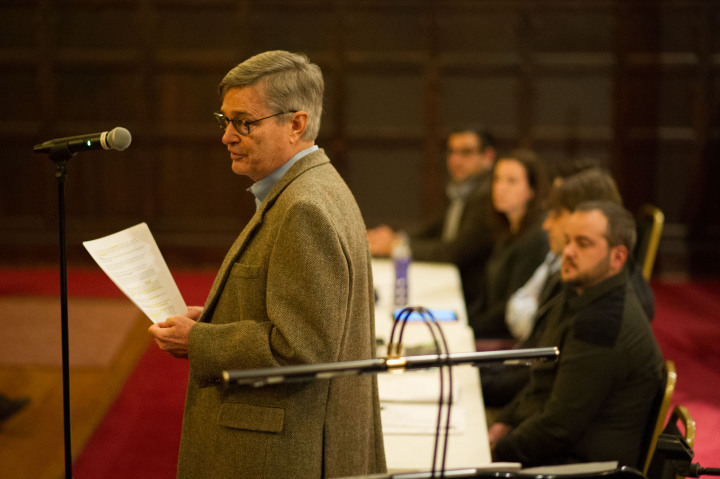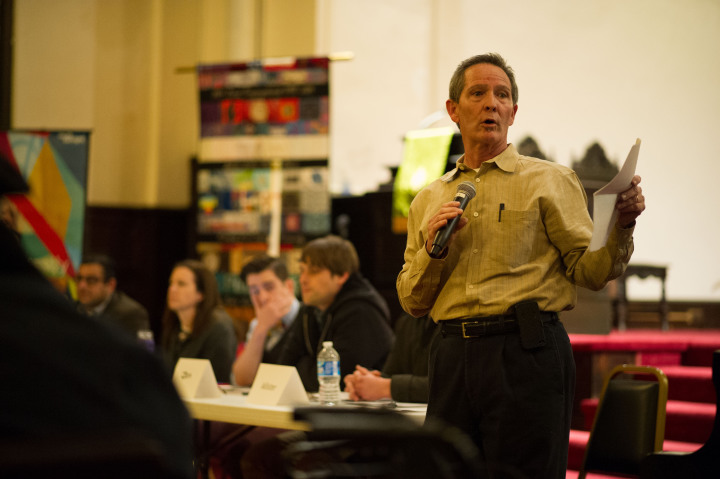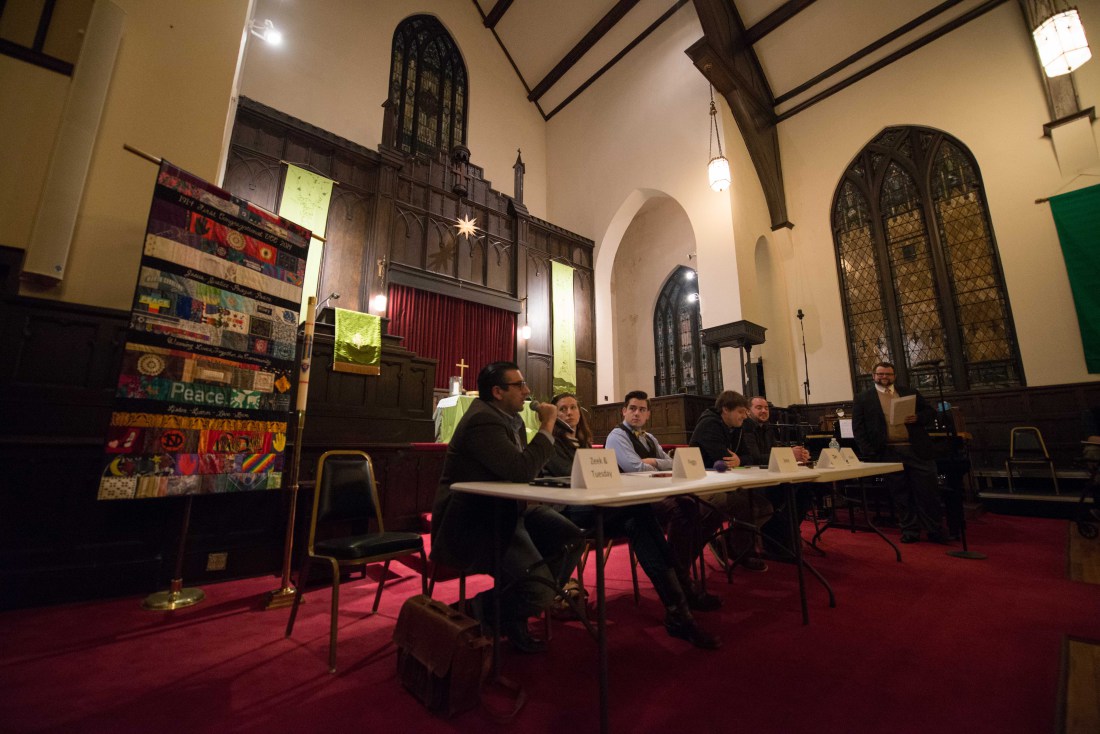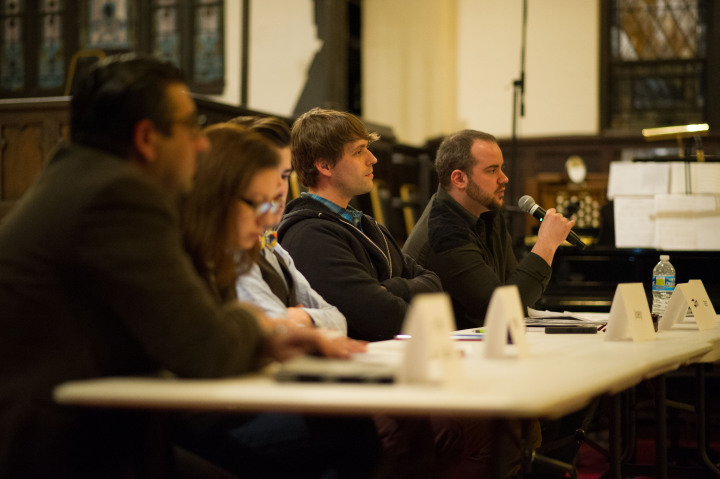The scarcity of jobs in Asheville, an already difficult job horizon for LGBTQ people, as well as difficult, intolerant home situations often mean unstable housing for these Western North Carolina youths. A Jan. 19 panel discussion sought answers to the complicated problem of homeless queer youth in Asheville.
“It’s not easy for anyone to find a job in Asheville, and it becomes all the more difficult with any type of discrimination. The piece that gets ignored is the emotional trauma, it makes every aspect of life more difficult,” said Allister Stryan of Help Out Youth. “You can’t get housing without a job, and you can’t get a job without the housing.”
Stryan was a panelist at the discussion, held at First Congregational United Church of Christ.
As Asheville becomes more and more an attractive and welcoming place for LGBTQ teens and young adults in the area as well as the country, the influx compounds the homeless situation. “We’re a victim of our own success,” said Yvonne Cook-Riley, a local advocate and member of the Asheville Downtown Association. “We have all these people coming to Asheville because it’s a welcoming place, but we might not have the support in place.”
For those already living in the region, the challenges faced by LGBTQ people are myriad. Keith Bramlett, professor, UNC Asheville and chair of Youth Outright, WNC Inc.’s board, led the discussion with some sobering facts.

behaviors such as drug sales, theft, and survival sex- all activities that put them at risk of arrest.
He said one in five homeless youth are LGBTQ, and the link between homelessness, education and the prison system is incredible.
“Approximately 300,000 LGBT youth — of which 60 percent are black or Latino — are arrested and detained each year. These queer youth are significantly over-represented in the juvenile justice system,” he said.
The chain of events begins in schools, where LGBTQ youth may be subjected to harsh school sanctions for gender nonconformity and are greatly impacted by zero tolerance policies for misconduct.
“LGBT youth who defend themselves from verbal and physical harassment and assault are often expelled and blamed for the disruption or violent episode. Without family or parental support, the transphobic or homophobic reinforcement of school polices, such as dress codes and behavior regulations, goes unquestioned and unchallenged,” said Bramlett. “Some LGBT youth are thrown out of school, while others simply leave as they have no support and no advocate. Consequently, they may end up in trouble with the police and courts.”
The professor said the problem is never about being just homeless. It’s about confronting multiple challenges and being vulnerable in multiple ways. Research on homeless LGBT youth indicates that they have a significantly higher rate of out-of-home placement than homeless heterosexual youth, as well as less access to mental health care.
“Homeless LGBT youth experience greater barriers to health care and mental health counseling. They have higher rates of post-traumatic stress, alcohol and substance abuse, conduct disorder … and are more likely to meet the criteria for major depression and attempt suicide more than their heterosexual peers,” said Bramlett.
Adding to the hole that homeless youth have to dig themselves out of is the significantly increased risk of HIV cases for the LGBTQ population.
Peggy Weil, advocacy coordinator, Western North Carolina AIDS Project, said stable housing is recognized as being a critical component in HIV/AIDS prevention.
“The longer adolescents remain homeless, the less motivated they are to reduce sexually risky behavior,” she said.
There are no simple answers to this complicated problem. Jobs, awareness, and a support system are complicated solutions, but ones that are being worked on, slowly but surely.
Jim Faucett, executive director of Youth Outright, said he was encouraged by the night’s talk, the first outreach program sponsored by the group.
“Tonight is just the beginning of the conversation. If we knew all the answers, we wouldn’t be here,” he said. “It’s a great start. We need to keep talking about it and act on it.”





Before you comment
The comments section is here to provide a platform for civil dialogue on the issues we face together as a local community. Xpress is committed to offering this platform for all voices, but when the tone of the discussion gets nasty or strays off topic, we believe many people choose not to participate. Xpress editors are determined to moderate comments to ensure a constructive interchange is maintained. All comments judged not to be in keeping with the spirit of civil discourse will be removed and repeat violators will be banned. See here for our terms of service. Thank you for being part of this effort to promote respectful discussion.